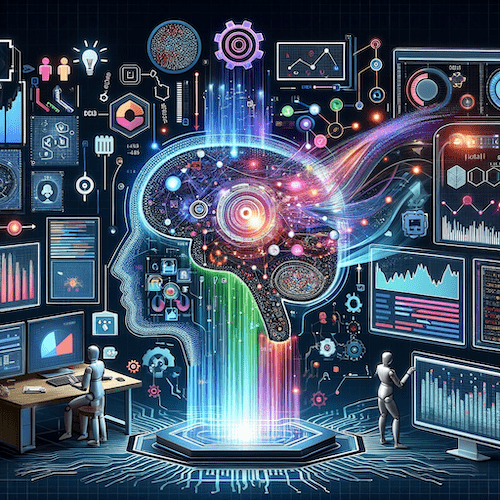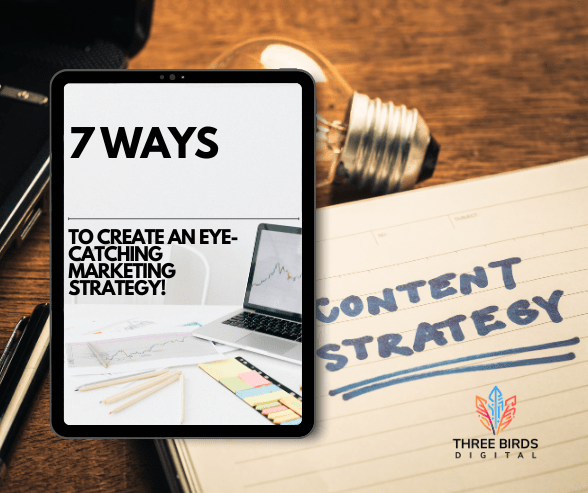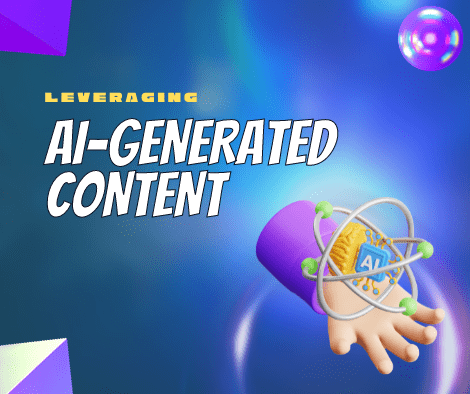Marketing analytics has undergone a remarkable transformation, mainly driven by the advent and integration of artificial intelligence (AI). This shift is a fleeting trend and a fundamental change in how data is analyzed and utilized for marketing decisions. The journey from traditional methods to AI-powered analytics marks a pivotal evolution in the marketing industry, reshaping strategies and outcomes.
In the past, marketing analytics was predominantly about gathering basic customer insights and market trends through surveys and sales data. This approach, while helpful, often led to static and generalized strategies that failed to account for the dynamic and individualized nature of consumer behavior. The introduction of digital platforms brought a surge in data availability. Still, it also introduced the challenge of big data – an extensive, complex, and often unstructured array of information that traditional analytic methods struggled to process efficiently and effectively.

Enter AI, a game-changer in this landscape. With its capability to handle vast and complex datasets, AI has revolutionized how marketers approach data analytics. By employing advanced algorithms, machine learning, and predictive analytics, AI enables marketers to uncover deep insights from data that were previously inaccessible or too intricate to decipher. This transition from basic data interpretation to advanced, AI-driven analytics represents a significant leap in the marketing field.
One of the most profound impacts of AI in marketing analytics is its ability to personalize. In an era where personalization is key to customer engagement, AI provides the tools to tailor marketing efforts to individual preferences and behaviors. By analyzing data points from various sources, AI can predict customer needs and preferences, allowing for more targeted and effective marketing strategies.
Moreover, AI’s predictive capabilities are transforming how marketers anticipate market trends and consumer behaviors. Instead of relying on historical data alone, marketers can now use AI to forecast future patterns, adapting their strategies proactively rather than reactively. This forward-looking approach is crucial in a rapidly changing market environment where staying ahead of trends can be the difference between success and obsolescence.

The integration of AI into marketing analytics is not without its challenges. Issues such as data privacy, ethical use of AI, and the need for a skilled workforce capable of working alongside AI are all critical considerations. However, AI’s potential benefits and advancements in marketing analytics are undeniable.
As we delve deeper into the role of AI in transforming marketing analytics, it’s essential to understand the technologies at play, their applications, and the future they are shaping. AI in marketing analytics is not just about handling data more efficiently; it’s about reimagining the possibilities of what marketing can achieve in an increasingly digital world.
Understanding Data in Marketing
In the dynamic landscape of modern marketing, understanding and effectively utilizing data is crucial for success. Data in marketing encompasses a wide array of information types, each offering valuable insights into different facets of consumer behavior and market dynamics. This includes demographic data, which provides a snapshot of the customer base in terms of age, gender, income, and other characteristics. Purchase history and sales data reveal patterns in consumer buying behavior, highlighting popular products and seasonal trends. Online behavior data, from website visits to social media interactions, offers a window into the digital footprint of consumers, shedding light on their interests, preferences, and online habits. Additionally, engagement metrics from email campaigns and digital advertisements provide feedback on the effectiveness of marketing strategies. Collectively, this diverse data forms the backbone of modern marketing efforts, enabling businesses to craft targeted and impactful campaigns.
However, the sheer volume and complexity of this data present significant challenges. Traditional data analysis methods often fall short in managing the intricacy and scale of contemporary marketing data. This is where the role of AI becomes pivotal. AI-driven tools are adept at sifting through large datasets and identifying patterns and correlations that human analysts might miss. For instance, machine learning algorithms can analyze customer behavior to predict future purchasing patterns, while AI-powered sentiment analysis can gauge customer opinions from social media posts and reviews. The challenge for marketers is not just in gathering this data but in interpreting it effectively. AI provides the means to transform raw data into actionable insights, enabling marketers to make informed decisions and tailor their strategies to meet their audience’s evolving needs and preferences.
AI Technologies in Marketing Analytics
As we delve into AI technologies in marketing analytics, it becomes evident that these advanced tools are not just auxiliary components but central pillars in the modern marketer’s arsenal. The integration of AI in marketing analytics represents a paradigm shift, introducing sophisticated methods to process, analyze, and interpret vast data sets with an efficiency and accuracy that traditional analytics methods cannot match. AI technologies such as machine learning, natural language processing, and deep learning have opened new avenues for understanding customer behavior, market trends, and the effectiveness of marketing strategies. These technologies do not merely handle the data; they bring it to life, turning numbers and metrics into actionable insights that drive smarter, more informed marketing decisions.

Key AI Technologies Reshaping Marketing Analytics:
Machine Learning and Predictive Analytics
At the forefront of AI’s integration into marketing analytics are Machine Learning (ML) and Predictive Analytics. These powerful tools harness the power of past customer data to forecast future behaviors and trends. ML models identify patterns and correlations that might elude traditional analysis by analyzing historical transactions, browsing patterns, and customer interactions. This predictive capability is invaluable for marketers, allowing them to anticipate customer needs, forecast demand, and tailor their campaigns with a high degree of personalization. For instance, an e-commerce company might use predictive analytics to recommend products to customers based on their browsing history and previous purchases, significantly enhancing the customer experience and increasing the likelihood of sales.
Natural Language Processing (NLP)
Another pivotal AI technology in marketing analytics is Natural Language Processing. NLP excels in interpreting and analyzing human language, a skill crucial for sentiment analysis. By scanning social media posts, customer reviews, and online discussions, NLP algorithms can understand public opinion and brand perception. This insight is vital for businesses to proactively manage their brand image, address customer concerns, and adapt their messaging to resonate better with their audience. For example, a brand might use NLP to monitor social media for customer sentiment, quickly identify and address negative feedback, or capitalize on positive trends to enhance brand loyalty and engagement.
AI-driven Customer Segmentation and Targeting
Traditional customer segmentation often relies on basic demographic data, leading to broad and sometimes ineffective marketing strategies. AI-driven segmentation, however, uses advanced algorithms to analyze a variety of data points, creating highly nuanced customer profiles. These profiles are based on demographic information and behavior, preferences, and purchasing patterns. This level of segmentation enables marketers to design highly personalized marketing strategies, targeting specific customer groups with tailored messages and offers. For example, a streaming service might use AI to segment its viewers based on viewing habits, suggesting new shows and movies that align with their preferences. This personalized approach improves the customer experience and enhances engagement and retention rates.
Integrating AI Tools Into Your Marketing Strategies
In the swiftly evolving world of digital marketing, integrating Artificial Intelligence (AI) into marketing strategies has become a cornerstone for achieving cutting-edge and effective campaigns. This integration marks a significant shift from conventional marketing methods to more intelligent, data-driven approaches that not only streamline decision-making processes but also enhance customer engagement and satisfaction. However, integrating AI into an existing marketing framework involves careful planning, the selection of appropriate technologies, and a commitment to evolving the marketing team’s skills. As businesses embark on this transformative path, they encounter the dual challenge of choosing the right AI tools tailored to their specific marketing goals and upskilling their teams to harness the full potential of these advanced technologies. This section explores the strategic steps necessary for successfully incorporating AI into marketing strategies, providing a roadmap for businesses to navigate this complex yet rewarding terrain.

Steps for Integrating AI Tools
Integrating AI into marketing strategies marks a significant step towards data-driven decision-making and enhanced customer experiences. To successfully implement AI tools, companies should follow a structured approach:
1. Identify Specific Needs and Objectives: Begin by pinpointing the areas within your marketing strategy that could benefit the most from AI. Whether it’s customer segmentation, predictive analytics, or personalization, having clear objectives helps select the right AI tools.
2. Choose the Right AI Technologies: Once the needs are identified, the next step is selecting the appropriate AI tools. This selection should be based on the specific marketing goals, the compatibility with existing systems, and the scalability to accommodate future growth.
3. Data Preparation and Integration: AI systems require access to relevant and high-quality data. Ensuring that your data sources are integrated and your data is clean and structured is crucial for the effective functioning of AI tools.
4. Implement in Phases: Roll out the AI tools in phases, starting with a pilot program. This phased approach allows you to test the waters, gather insights, and make necessary adjustments before a full-scale implementation.
5. Monitor and Optimize: Continuous monitoring of the AI tools is essential to assess their performance and impact on marketing outcomes. Based on the results, you can fine-tune the algorithms and strategies to optimize the results.
Training Teams to Use AI-driven Tools
Implementing AI tools is only part of the equation. Equally important is ensuring that your marketing team is well-equipped to use these tools effectively.
1. Develop a Training Program: Create a comprehensive training program that educates team members about the basics of AI and how these new tools will be used in their specific roles. This training should be tailored to various skill levels within the team.
2. Hands-on Experience: Provide hands-on experience with the AI tools. This could include workshops, simulations, or working with sample data sets. Real-time practice will help in understanding the practical applications of AI in marketing.
3. Encourage a Culture of Continuous Learning: AI and technology landscapes are constantly evolving. Encourage a culture of continuous learning and curiosity within your team. Regular updates on the latest AI trends and developments will keep the team informed and agile.
4. Provide Support and Resources: Ensure that team members have ongoing support and resources to navigate challenges. This support could be from internal experts, online resources, or external consultants specializing in AI.
5. Foster Collaboration: Encourage collaboration between team members, IT specialists, and data scientists. This interdisciplinary approach can lead to innovative uses of AI in marketing and help in overcoming any technical or operational hurdles.
Incorporating AI into marketing strategies enhances the efficiency and effectiveness of marketing efforts and prepares businesses for the future. By following these steps and ensuring that teams are well-trained and supported, companies can leverage AI to significantly improve their marketing outcomes.
Ethical Considerations and Data Privacy
In the era of AI-driven marketing, ethical considerations, and data privacy have emerged as pivotal concerns. As AI tools become increasingly integral to marketing strategies, they bring with them a heightened responsibility for the ethical use and protection of customer information. This delicate balance between leveraging data for personalized marketing and respecting consumer privacy is a significant challenge for modern businesses.
Navigating the Tightrope of Data Privacy
AI in marketing often involves analyzing vast amounts of personal data to derive insights and tailor marketing strategies. While this can lead to highly effective and personalized customer experiences, it also raises critical questions about privacy. Businesses must navigate a complex landscape where consumer expectations of privacy are high, and regulatory frameworks, like the General Data Protection Regulation (GDPR) in the European Union or the California Consumer Privacy Act (CCPA) in the United States, are increasingly stringent.
Compliance with Data Protection Laws
Compliance with data protection laws is a legal obligation and a cornerstone of consumer trust. Businesses must ensure that their use of AI in marketing analytics is transparent and compliant with these laws. This includes obtaining explicit consent for data collection and use, providing clear information about how data is processed and used, and offering options for consumers to control their data.
Balancing Personalization with Privacy
The allure of AI in marketing is its ability to personalize content to an unprecedented degree. However, this personalization must not come at the expense of consumer privacy. Businesses need to establish ethical guidelines that dictate how data is used. This includes avoiding overly intrusive data practices and ensuring that personalization strategies are sensitive to consumer privacy concerns.
The Role of AI Ethics
In addition to legal compliance, there is a growing emphasis on AI ethics – principles that govern the use of AI in a way that is respectful and mindful of consumer rights and societal norms. Companies are encouraged to adopt ethical AI frameworks that guide decision-making processes in marketing strategies. This involves regular audits of AI systems for biases, ensuring fairness and transparency in AI algorithms, and maintaining an ongoing dialogue with stakeholders about AI and privacy issues.
Building Trust with Transparency
Transparency in AI operations can significantly enhance consumer trust. Businesses should openly communicate about their use of AI tools in marketing and how they protect consumer data. Engaging customers in this conversation builds trust and enhances their understanding and acceptance of AI-driven personalization.
As AI continues to reshape the marketing landscape, ethical considerations and data privacy must be at the forefront of these technological advancements. By prioritizing ethical practices and data privacy, businesses can harness the power of AI in marketing while maintaining the trust and confidence of their customers.
The Future of AI in Marketing Analytics
Integrating Artificial Intelligence (AI) in marketing analytics has already brought about profound changes. Still, it is the future possibilities and emerging trends that truly illustrate the potential of AI in transforming the marketing landscape. As we look forward, several key trends and technologies are poised to shape the future of AI in marketing analytics.

Emerging Trends and Technologies
1. Voice and Conversational AI: With the rising popularity of smart speakers and voice assistants, voice search and conversational AI are becoming crucial for marketing strategies. Brands are likely to invest more in optimizing their voice search content and developing chatbots that can provide personalized customer service experiences.
2. Augmented Reality (AR) and Virtual Reality (VR): These technologies offer immersive experiences that can revolutionize customer engagement. Marketers might leverage AR and VR for virtual try-ons, product demonstrations, or interactive advertising, providing customers with innovative ways to interact with products.
3. AI-Driven Content Creation: AI is analyzing data and starting to create content. From writing product descriptions to generating creative ad copy, AI tools are likely to play a significant role in content creation, offering efficiency and scale that human copywriters cannot match.
4. Predictive and Prescriptive Analytics: While predictive analytics is already in use, the future will see an evolution towards prescriptive analytics. This advanced form of analytics doesn’t just predict future outcomes but also suggests actions to achieve desired results, offering more proactive decision-making tools in marketing.
5. Ethical AI and Privacy-First Approaches: As data privacy and ethical AI concerns grow, marketers will need to adopt privacy-first strategies. This means more transparent data practices, ethical AI algorithms, and a focus on earning customer trust through responsible data usage.
Predictions for the Future of AI in Marketing
1. Hyper-Personalization: AI will drive hyper-personalization to new levels, where marketing strategies are tailored to segments and individualized to each customer. This will be based on real-time data and predictive analytics, offering highly personalized customer experiences.
2. AI and Human Collaboration: The future of marketing analytics will not be AI replacing humans but AI collaborating with human insight. This synergy will lead to more creative and effective marketing strategies that leverage AI’s analytical power and human creativity.
3. Greater Integration Across Channels: AI will enable more seamless integration of marketing efforts across various channels, whether it’s social media, email, or offline channels. This will allow for more cohesive and consistent marketing messages and strategies.

4. Increased Use of Real-Time Analytics: Real-time analytics will become more prevalent, allowing marketers to make quicker, data-driven decisions. This immediate insight will be crucial in dynamic market environments where consumer preferences and behaviors change rapidly.
5. Focus on Customer Experience: The ultimate goal of AI in marketing will be to enhance the customer experience. From personalized recommendations to timely customer service, AI will be used to make every interaction with the brand more engaging and satisfying for the customer.
The future of AI in marketing analytics is not just an extension of current trends but a leap into a more interconnected, intuitive, and customer-centric approach. These advancements promise enhanced efficiency and effectiveness for marketers and a richer, more personalized experience for consumers.
Find A Trusted Marketing Strategy Partner
As explored throughout this blog, the integration of Artificial Intelligence in marketing analytics heralds a new era of data-driven decision-making and customer engagement. From leveraging machine learning for predictive analytics to adopting AI for personalized customer experiences, the potential of AI in marketing is vast and continuously evolving. The key for businesses is to adapt to these changes and to be at the forefront, embracing new technologies and trends to stay competitive and relevant in an ever-changing market landscape.
However, understanding and implementing AI in marketing strategies is a complex task that requires expertise and a nuanced approach. This is where Three Birds Digital can be your trusted partner. We specialize in navigating the intricacies of AI in marketing, helping businesses unlock the full potential of their data and technology. Whether you’re looking to refine your marketing strategy with AI-driven insights or seeking to integrate the latest AI tools into your marketing efforts, our team of experts is here to guide you every step of the way.
Ready to transform your marketing with AI? Contact Three Birds Digital today. Let’s embark on this journey together, leveraging the power of AI to create marketing strategies that are not only effective but also future-ready.




